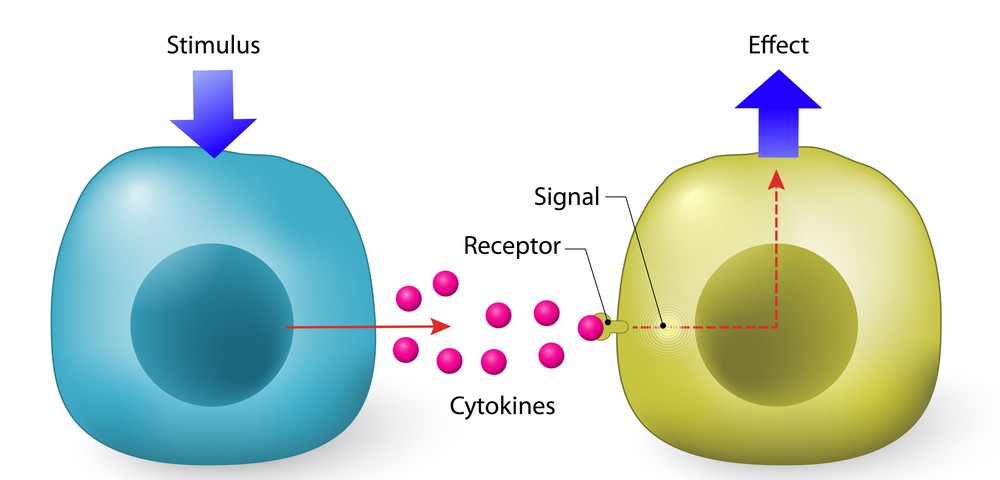Women with endometriosis carry increased levels of a specific group of anti-inflammatory cytokines. The study titled “Serum anti-inflammatory cytokines for the evaluation of inflammatory status in endometriosis” was published in the Journal of Research in Medical Sciences.
Endometriosis is a common gynecological disease characterized by an abnormal growth of the tissue normally lining the inside of women’s uterus — the endometrium — outside the uterine cavity. Although disease etiology and pathogenesis is not fully understood, it has been suggested that endometriosis is a local pelvic inflammatory condition that involves altered functions of immune cells. As such, women with endometriosis may exhibit an unbalanced number of immune cells, such as an increased number of macrophages, which secrete growth factors and cytokines (small proteins acting as cell signaling molecules that aid cell in cell communication and direct cells towards sites of inflammation, infection and trauma).
Researchers investigated the profile of anti-inflammatory cytokines in the blood of patients with endometriosis and compared it to that found in healthy controls. A total of 160 women enrolled at the Obstetrics and Gynecology Clinic, Cluj-Napoca, in Romania, were divided into two study groups: group I – endometriosis and group II – healthy controls. The team focused on the interleukin-1 (IL-1) system, which includes 11 cytokines, previously suggested to play key roles in endometriosis.
The researchers found increased levels of the interleukin-1 receptor antagonist (IL-1Ra), a naturally occurring anti-inflammatory cytokine, together with IL-4, and IL-10 in the serum of women with endometriosis when compared to healthy controls. No significant differences were found for serum levels of IL-2, IL-13, and IL-15 between endometriosis and controls.
These findings suggest that endometriosis is associated with increased levels of a group of anti-inflammatory cytokines, IL-1Ra, IL-4, and IL-10 that carry potential prognostic value for endometriosis. Additional studies should further investigate the role of how anti-inflammatory cytokines impact on the pathogenesis of the disease.

